Phipps Stories
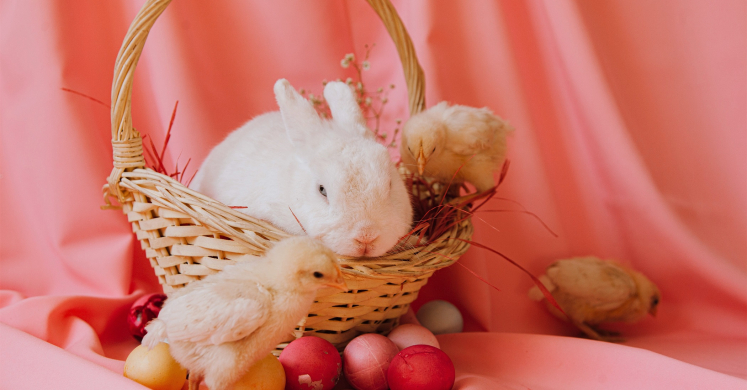
#bioPGH Blog: Not the Best Gift for the Basket
 A resource of Biophilia: Pittsburgh, #bioPGH is a weekly blog and social media series that aims to encourage both children and adults to reconnect with nature and enjoy what each of our distinctive seasons has to offer.
A resource of Biophilia: Pittsburgh, #bioPGH is a weekly blog and social media series that aims to encourage both children and adults to reconnect with nature and enjoy what each of our distinctive seasons has to offer.
On a perfect spring afternoon in April of 2020, I pulled some hedge clippers and a shovel out of the shed and started working on the tangles of black raspberry on the hillside behind my house. This was our first spring our new home, and my imagination was bursting with all of the things I could plant in the years to come! As it turned out, removing so much of thorny masses turned out to be important on a whole different level — as I trimmed and dug, my husband and I heard a small series of peep peep peep. The little peeps grew louder, coming closer. Peep peep peep. Seemingly out of nowhere, two fluffy little chicks had just walked through the newly cleared hillside into our backyard!
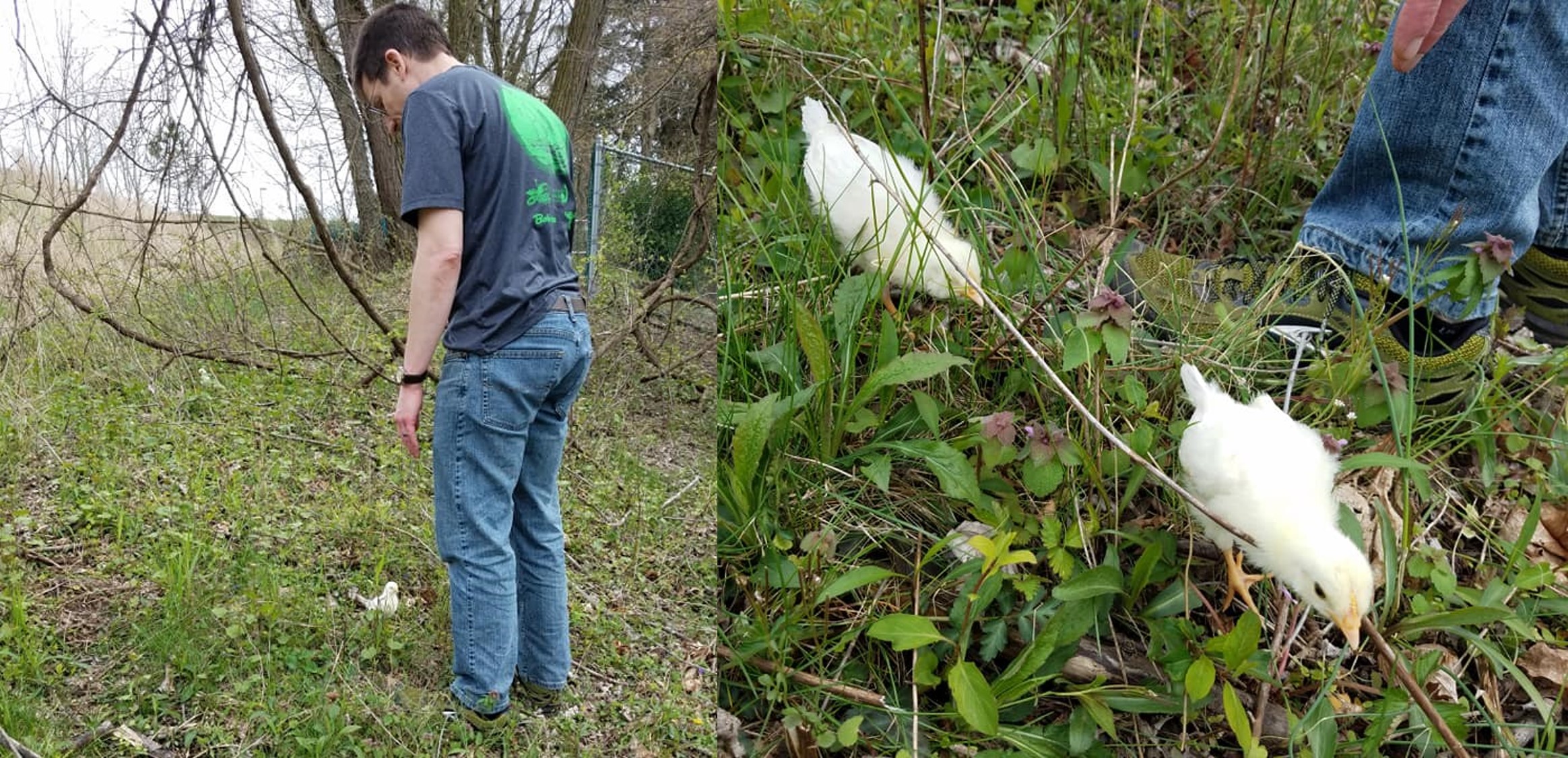
The wild hillside must have felt like a jungle to them!
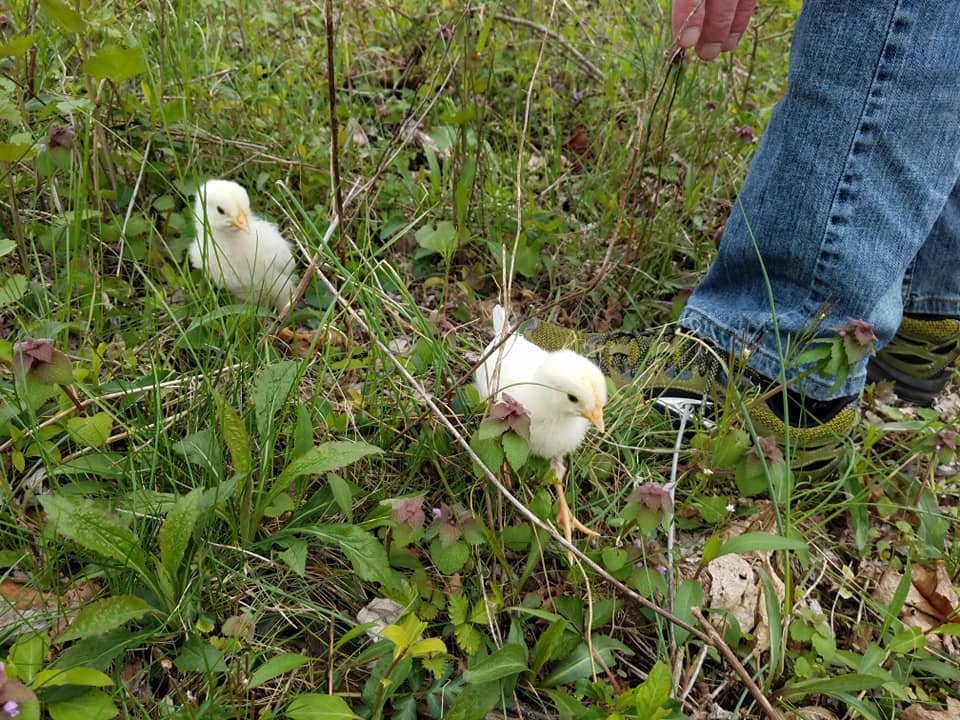
Just teeny chicks!
Stunned, we quickly checked the row of houses to either side of us. Had anyone lost little chicken chicks? No? At the top of the hill beyond our backyard, we knew there was a road that was seldom used during the pandemic closures, and along that road there was some greenspace and a little wetland. Had someone left these little chicks there? They had to have come from somewhere, but where? we wondered.
We would continue to wonder, but in that moment, these little chicks needed heat, proper food, and water. Based on their feathering, we guessed they were probably only two weeks old. After some phone calls to shelters who were struggling with the pandemic, we decided to at least temporarily take care of these little chicks who needed help right then. Well, we thought it would be temporary. Now, nearly three years, a municipal zoning variance, lots of books, and countless trips to Tractor Supply later, Laverne and Shirley are doing quite well as city chickens, with a lovely coop specifically designed for backyard poultry-keeping and all the mealworms and cracked corn that Mommy allows them for treats.
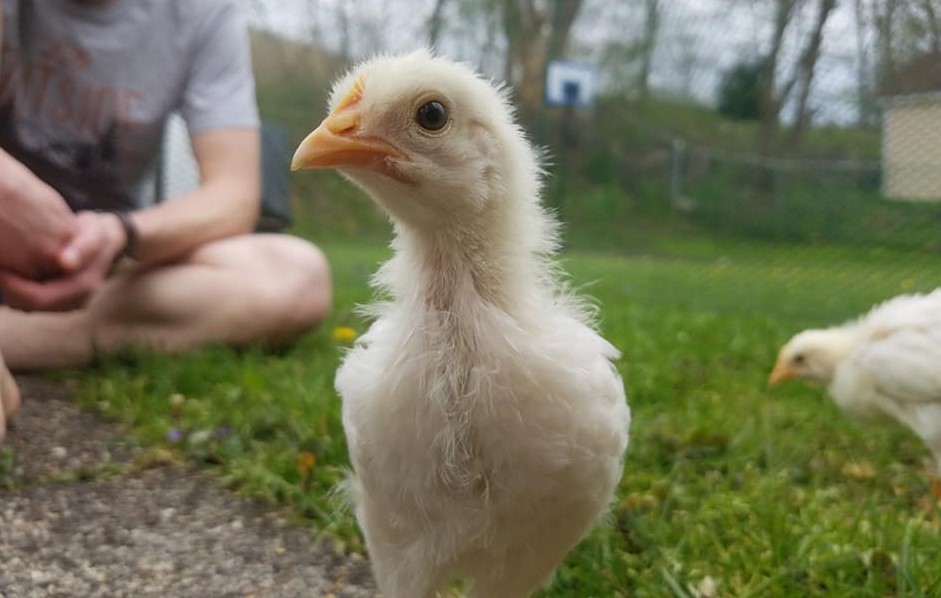
A curious chick pondering life and cameras
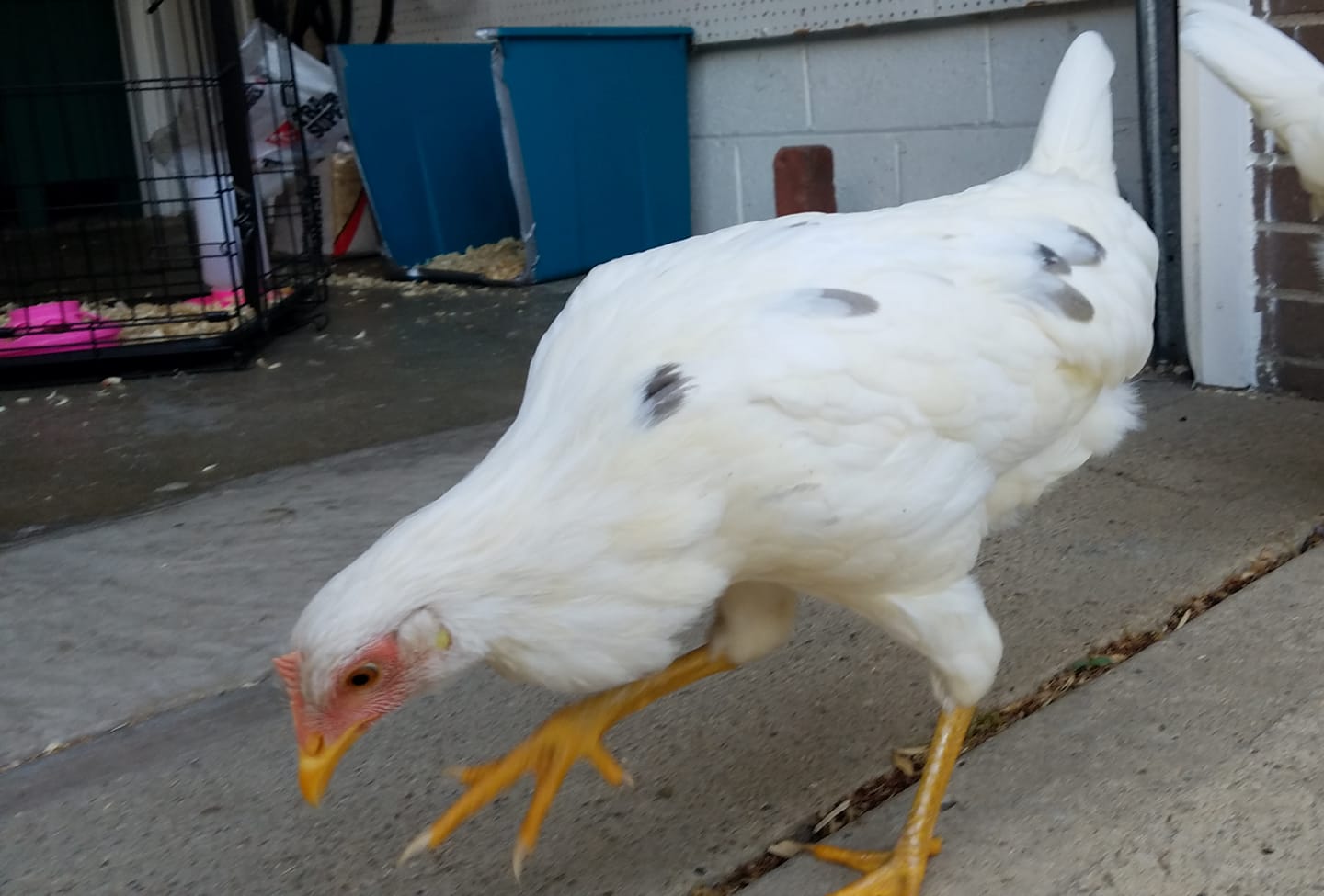
The awkward “teenage” phase affects us all.

We gave a fall photo shoot a very good effort.
It was an amazing story that worked out well for all of us, for sure. My husband and I love being unexpected “chicken parents.” We have regular fresh (very local) eggs, and though we are new at this, we certainly try to give our gals the best little chicken life possible. We have to wonder where they came from, though…and I will admit that I have a few guesses.
A notable detail in this situation is that Laverne and Shirley walked into our backyard exactly one week after Easter. Before Phipps, I had worked and volunteered in multiple zoos for cumulatively a decade, and during the spring time, we had a message that we emphasized over and over: chicks, ducklings, and bunnies do not make good Easter basket gifts. They are cute, but they are a responsibility. They are living little creatures with very specific needs that aren’t common knowledge. The chickens and ducks, especially, also come with legal zoning questions, and both can spread salmonella. On top of all of this, these animals all also have longer lifespans than many assume; depending on breeds and care, all three kinds of animals can live up to a decade or more. Animal shelters report higher in-take of these three in the weeks after Easter (it’s so problematic that some places have even considered banning sale of bunnies in the weeks before Easter), and that is if the animals are taken to a shelter.
My guess is that Laverne and Shirley were dropped off in the greenspace over the hill behind our house. Based on the fencing and distances in the area, plus the weather at that time, it’s unlikely they were little escapees from a home. And the fate of being “released to the wild” is unfortunately also a possible outcome for many Easter basket gifts, even though it is usually fatal to domesticated animals, especially juveniles and babies. Rabbits sold as pets are not wild rabbits. They have been selectively bred over many generations to live in human care, and they cannot survive in the wild like an eastern cottontail can. Chicks and ducklings need the warmth that a parent or a heat lamp would provide, plus, early spring won’t provide the nutritional content they would need to survive. Not to mention, all would be completely unprepared to deal with predators like hawks and outdoor cats. So when planning the baskets this year, perhaps stick to dark chocolate or craftsy chicks and bunnies.
However, I will certainly say, with the proper research and planning, chickens, ducks, and rabbits can all make great additions to the family! Laverne and Shirley honestly helped us get through some of the darker points of 2020 with their goofy antics, and I love sharing eggs or chicken-howdies with neighbors. Like any pet or farm animal, though, they are work. They are little living creatures who depend on us — we can’t take that responsibility lightly. So perhaps if you are seriously considering chicks, ducklings, or rabbits, rather than delivering them as a surprise, have a family meeting and do the preparation together. Map out what care the animals will need and which family members will deliver that care. The planning will be exciting, and your animals will thank you for it later!
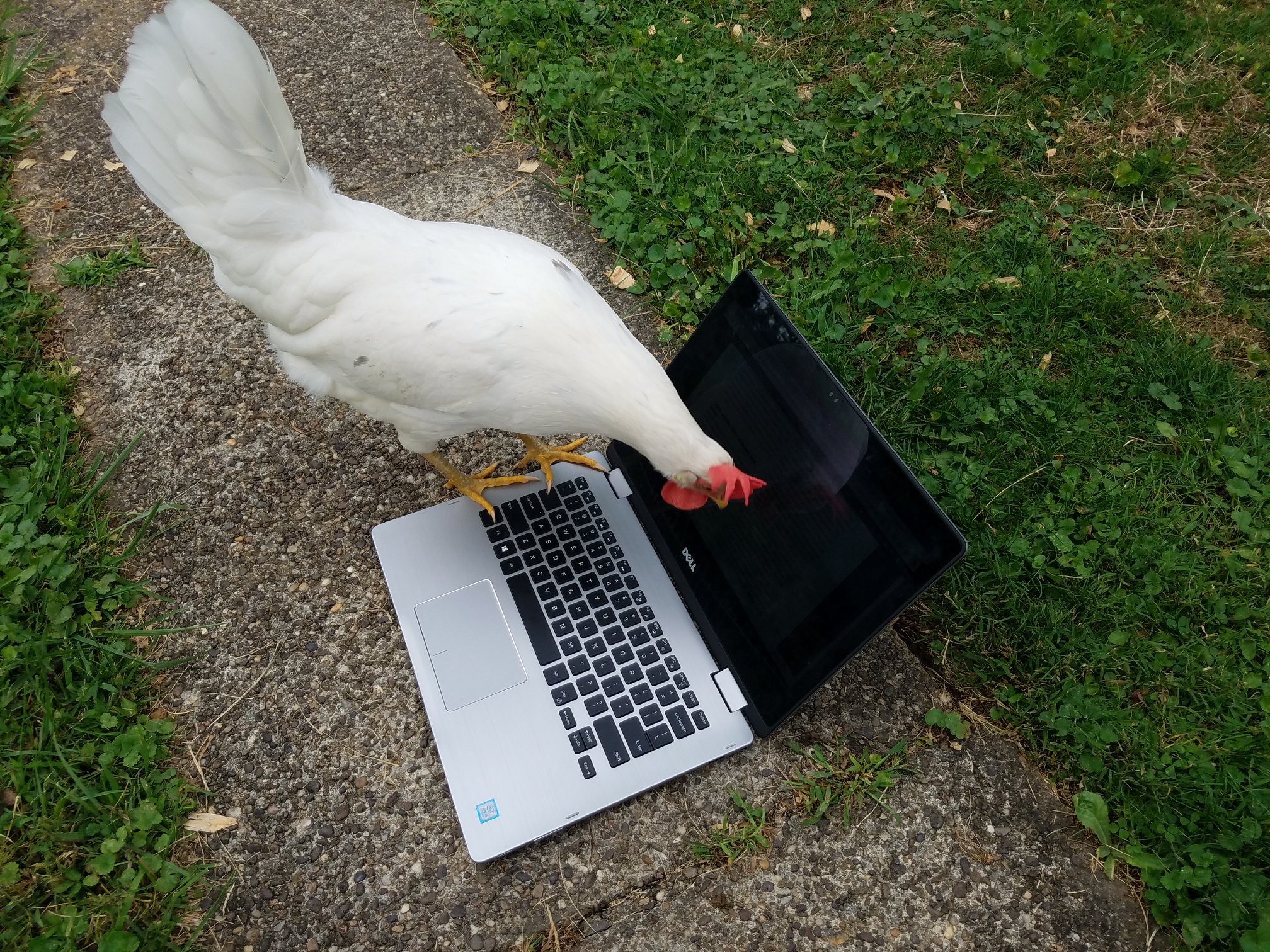
Ghost blogger
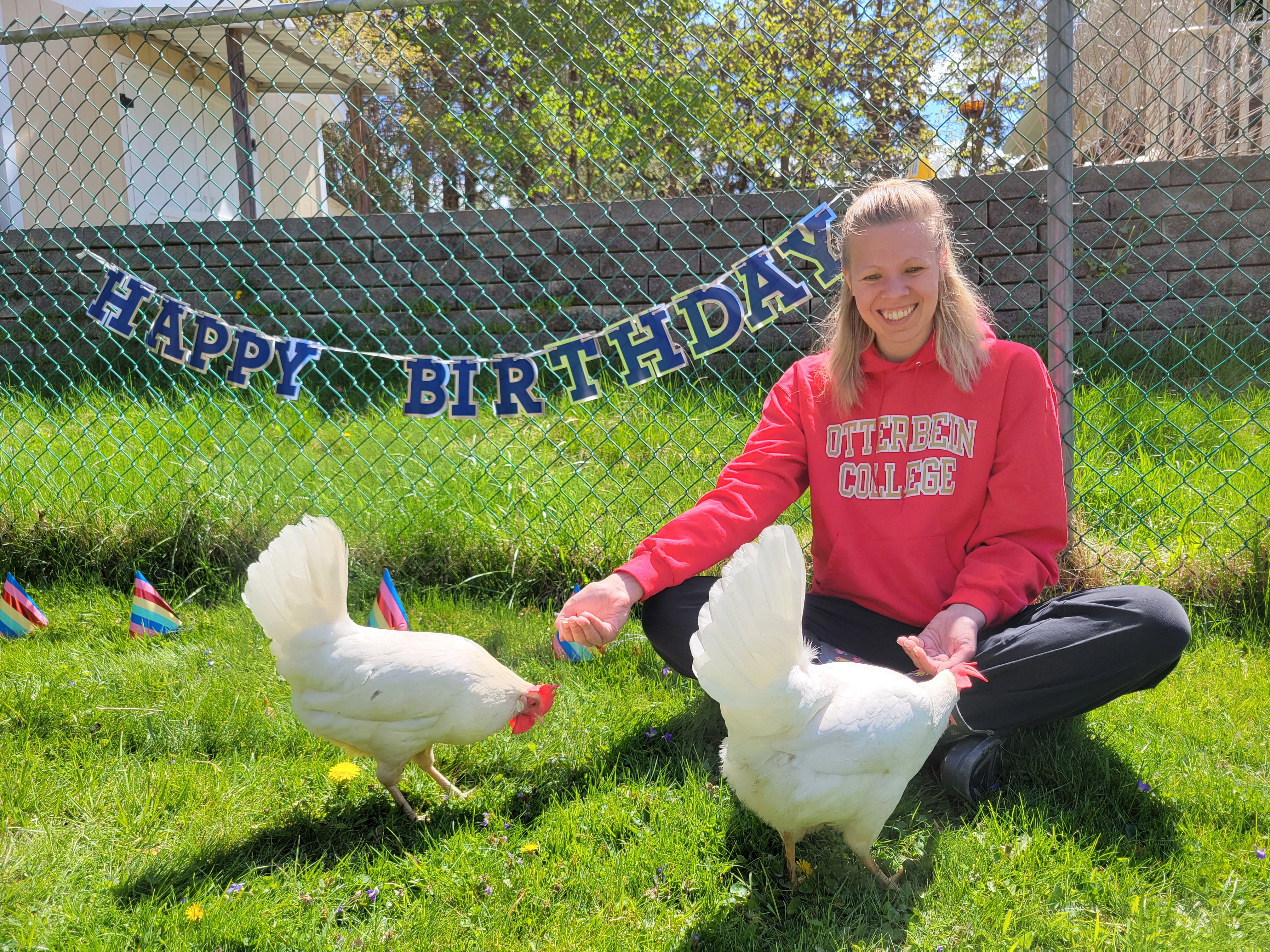
Laverne and Shirley's first estimated birthday.
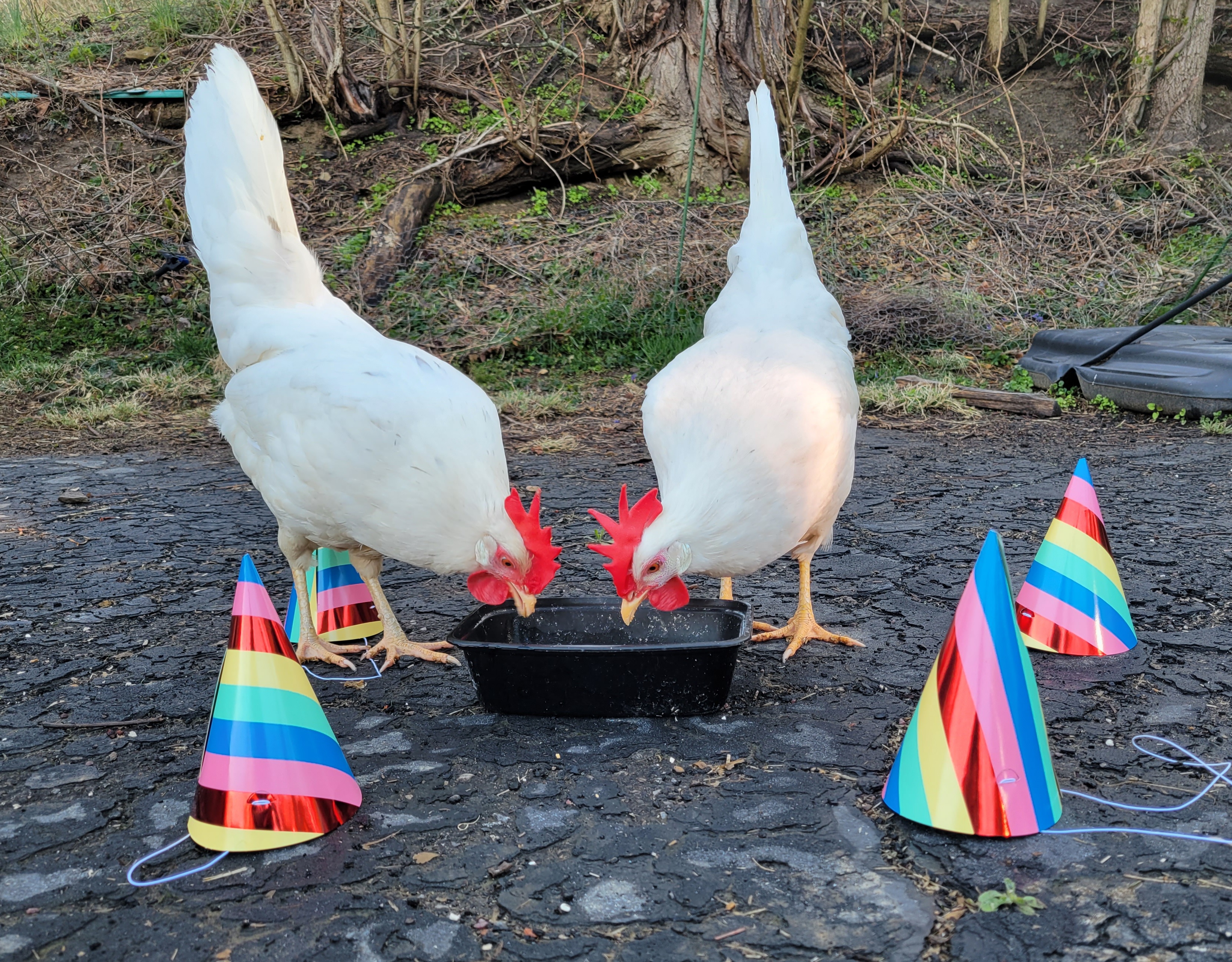
And their second birthday! Their third is a few weeks away.
Photo credits: Header and cover both Pexels, public domain. All other photos Wheeler-Dubas family.

